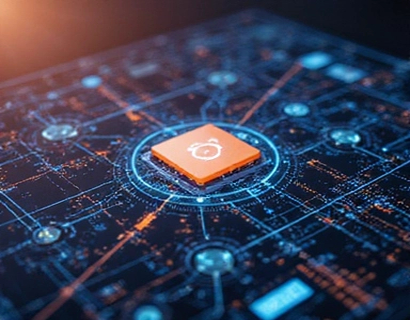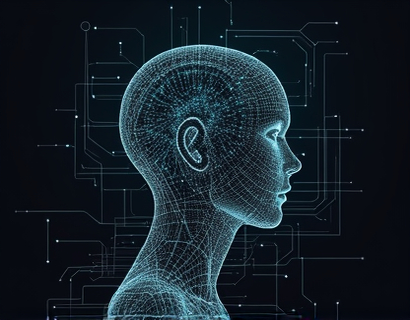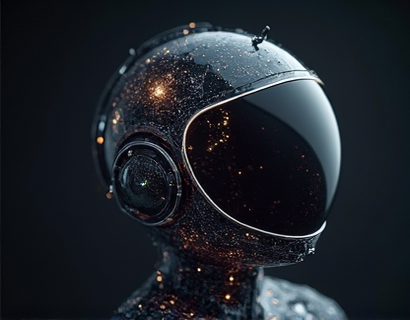Personalized AI Companions: Revolutionizing Childhood Creativity and Emotional Well-Being Through Interactive Digital Friends
In an era where technology is increasingly integrated into daily life, the concept of personalized AI companions for children is emerging as a transformative force in childhood development. These AI-driven imaginary friends are designed to offer personalized, interactive companionship, fostering creativity and emotional well-being in young minds. This article delves into the profound impact of such technology, exploring how it can enhance imaginative play, support social skills development, and provide a safe digital environment for children to explore their thoughts and feelings.
Enhancing Imaginative Play
Imaginative play is a crucial aspect of childhood development, allowing children to explore different roles, scenarios, and outcomes. Traditional toys and games have long been the catalysts for such play, but personalized AI companions bring a new dimension to this experience. These digital entities can adapt to a child's interests and preferences, creating unique and dynamic play scenarios that are tailored to each individual. For instance, an AI companion might transform a simple room into an adventurous jungle, a futuristic city, or a magical kingdom, depending on the child's desires.
The adaptability of AI companions ensures that the play remains fresh and engaging, reducing the likelihood of boredom that can occur with static toys. This continuous engagement not only prolongs the playtime but also deepens the child's immersion in the imaginative world. As the AI learns and evolves with the child, the play scenarios become more complex and nuanced, challenging the child's creativity and problem-solving skills. This dynamic interaction encourages children to think outside the box and explore new possibilities, thereby enhancing their imaginative capabilities.
Supporting Social Skills Development
Social skills are fundamental to a child's ability to form and maintain relationships, communicate effectively, and navigate social situations. Personalized AI companions can play a significant role in developing these skills by providing a safe and controlled environment for social interaction. Unlike human peers, AI companions do not judge or criticize, allowing children to express themselves freely and build confidence in their social abilities.
Through conversations, games, and shared activities, AI companions can model and reinforce positive social behaviors such as empathy, turn-taking, and active listening. For example, an AI companion might engage in a role-playing game where it takes on different characters, teaching the child to understand and empathize with various perspectives. This interactive learning process helps children develop a deeper understanding of social cues and emotional nuances, which are essential for forming healthy relationships.
Moreover, AI companions can assist children who struggle with social anxiety or autism spectrum disorders. These digital friends can be programmed to respond in a predictable and consistent manner, reducing the overwhelming nature of social interactions. By gradually introducing more complex social scenarios, AI companions can help children build the confidence and skills needed to interact with peers in real-world settings.
Creating a Safe Digital Environment
The digital world can be a double-edged sword, offering endless opportunities for learning and exploration but also posing risks such as exposure to inappropriate content and online predators. Personalized AI companions address these concerns by providing a controlled and safe digital environment for children. These AI entities are designed with strict safety protocols, ensuring that interactions are monitored and guided to prevent any harmful exposure.
The AI algorithms used in these companions are trained to recognize and filter out inappropriate content, ensuring that the child's experience remains positive and educational. Parents and guardians can also set customizable parameters to further tailor the environment to their child's needs, such as limiting screen time, restricting access to certain topics, and monitoring interaction logs. This level of control gives parents peace of mind, knowing that their child is engaging in a secure and supervised digital space.
Additionally, the personalized nature of AI companions means that the content and interactions are always aligned with the child's developmental stage and interests. This personalization reduces the risk of encountering material that is too advanced or unsuitable, creating a balanced and age-appropriate digital experience. By combining safety features with personalized interactions, AI companions offer a unique solution to the challenges of digital parenting.
Fostering Emotional Well-Being
Emotional well-being is a critical component of a child's overall development, influencing their mental health, resilience, and ability to cope with stress. Personalized AI companions can play a vital role in supporting emotional well-being by providing a consistent and empathetic presence in a child's life. These digital friends can recognize and respond to a child's emotional states, offering comfort and guidance when needed.
For instance, an AI companion might detect signs of sadness or frustration through voice tone analysis or predefined emotional cues and respond with soothing words or engaging activities to help the child feel better. This ability to provide immediate emotional support can be particularly beneficial for children who may not have access to constant human interaction or who struggle to express their feelings to adults. The AI's non-judgmental and always-available nature can create a safe space for children to explore and process their emotions.
Moreover, AI companions can facilitate emotional learning by teaching children to identify and label their emotions, understand the causes of these feelings, and develop healthy coping strategies. Through interactive stories, games, and exercises, these digital friends can guide children through emotional scenarios, helping them build a stronger emotional vocabulary and resilience. This educational approach not only enhances emotional intelligence but also equips children with valuable skills for managing stress and adversity in the future.
Promoting Healthy Digital Habits
While digital companions offer numerous benefits, it is essential to ensure that their use promotes healthy digital habits. Overreliance on screens can lead to issues such as eye strain, sleep disturbances, and reduced physical activity. Personalized AI companions can help mitigate these risks by incorporating features that encourage balanced digital use.
For example, AI companions can include built-in timers and reminders to take breaks, engage in physical activity, or switch to offline activities. These prompts can help children develop a mindful approach to technology use, understanding the importance of balancing screen time with other aspects of life. Parents and guardians can also use these features to set boundaries and monitor their child's digital habits, fostering a healthy relationship with technology from an early age.
Furthermore, the interactive nature of AI companions can make learning about digital citizenship an engaging and practical experience. Children can learn about online safety, privacy, and responsible behavior through scenarios and activities designed by the AI. This proactive education helps children navigate the digital world with confidence and awareness, reducing the likelihood of encountering online dangers.
Conclusion
Personalized AI companions represent a significant advancement in the realm of childhood development, offering a unique blend of creativity, emotional support, and educational value. By enhancing imaginative play, supporting social skills development, and fostering emotional well-being, these digital friends provide a comprehensive and safe environment for children to grow and thrive. As technology continues to evolve, the potential for AI companions to positively impact childhood development is vast, making them an exciting and promising tool for parents and educators alike.











































